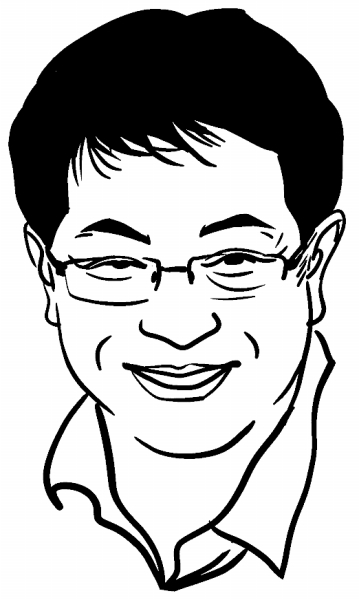The medical professor tells you who can study medicine.

Near the college entrance examination, how to fill in the volunteers must be a tangled problem for many students. Today, we share with two professors, one is Professor A from Peking University, who returned to the United States, and the other is Professor B from the Third Hospital of Beijing Medical University, who is trained in China, their personal feelings of many years of medical professional study and research, so as to open the thinking space for students to fill in their volunteers.
Question 1: There are many medical disciplines. If you help your child to fill in the volunteers, what major do you want to choose?
Professor A: Depending on the child’s talent, it is recommended to study basic medicine or clinical medicine. General talent, studying clinical medicine; If the talent is very general, it is best not to study medicine.
Professor B: I will choose clinical medicine.
Judging from the number of disciplines and specialties in China, medicine ranks third except engineering and science. Its first-level disciplines include basic medicine, clinical medicine, stomatology, public health and preventive science, traditional Chinese medicine, integrated traditional Chinese and western medicine, pharmacy, special medicine, medical technology and nursing, and there are several specialties under it. To fill in the volunteer professional choice, candidates should not only look at their own interests, but also their own abilities.
Question 2: Would you choose Chinese medicine or western medicine for your child?
Professor A: Western medicine is good, but Chinese medicine is not excluded.
Professor b: western medicine.
It’s very interesting. The two of you basically agree and are very concise. Here, candidates are reminded that when they choose Chinese medicine or western medicine, they still need to make a decision according to their own situation and hobbies.
Question 3: What do you think of studying medicine for employment?
Professor A: In the long run, the medical profession will not be unemployed.
Professor B: At present, there is a dilemma in the employment of medical majors, that is, large hospitals are difficult to find jobs and small hospitals are unwilling to go. Generally speaking, the employment prospects of medical majors are not very optimistic.
Your views are somewhat different. It is difficult to study medicine and obtain employment, which is largely subject to the problem of system construction. As long as you put yourself in the right position, as a doctor, you won’t worry about your basic life and development. Last month, we went to Hiroshima, Japan for academic exchange, and found that there was a specialized hospital with only a few rooms every 200 meters on the street, which was popularly called a community hospital. Patients go to big hospitals only when they are seriously ill, while ordinary diseases go directly to community hospitals. If a large number of community hospitals are set up in China, it will not only solve the contradiction between doctors and patients, but also make full employment for medical students, and effectively use hospital resources and reduce medical expenses.
Question 4: Do you need to have good basic knowledge of science such as mathematics to study medicine?
Professor A: Yes. Medicine is a comprehensive subject based on mathematics, physics, chemistry and biology.
Professor B: You don’t have to.
Whether you need basic knowledge of science, such as mathematics, depends on which major you choose in the medical discipline. Therefore, candidates must know something about the courses of the selected major when filling in their volunteers.
Question 5: Do you have any suggestions for students who choose to study medicine?
Professor A: Good moral quality, good health and good brain.
Professor B: To be a doctor, not a doctor, you should pay attention to studying medical history.
Studying medicine is not only to learn medical technology, but also to have love and awe of the profession, otherwise it is impossible to become a good doctor.
Summary: As for the candidates’ volunteering, first, they should be considered comprehensively in combination with their own interests and college entrance examination scores. When choosing a volunteer, you should put your interests and hobbies in the first place. However, due to the limitation of scores, the medical school reported in the college entrance examination may not be ideal, but in the future, you can "save the country by curve" and go to your ideal university. Second, you must not be eager for quick success and instant benefit when filling in your volunteers. Employment and income must be considered when filling in volunteers, but they cannot be put in the first place. The development of the industry may be "thirty years in the east and thirty years in the west". It should not be the choice of ambitious people to fill in the college entrance examination volunteers only considering the immediate interests.
(The author is a member of Hong Chengwen’s team at the Institute of Higher Education, Department of Education, Beijing Normal University)